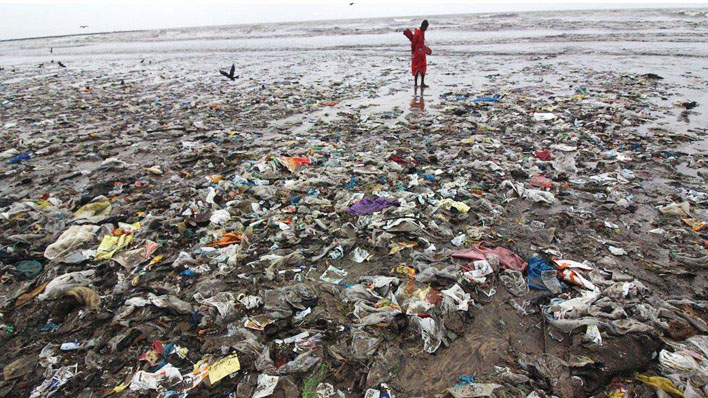With the global environmental lobby increasingly focusing its attention on rolling back the increasing avalanche of plastics’ proliferation and its weighty global environmental impact, negotiators and activists were expected to congregate in Ottawa this week to attempt to craft a treaty which, hopefully, will contribute to the rolling back of the plastic pollution menace. With experts estimating that the world’s waterways has become home to the equivalent of 2,000 garbage trucks full of plastics every day, according to the United Nations Environment Programme [UNEP], the event is being staged much more out of hope than conviction that its ‘shout out’ to what continues to be an indifferent international community will benefit from an attentive ear.
The Ottawa forum will require that assembled negotiators streamline a pre-existing treaty draft on plastic pollution in addition to making a decision on whether it will focus directly on human health and the environment, by placing limits of the production of plastics, restricting some of the chemicals used in plastics, or any combination of those options in order to slow the march of the stifling plastics’ juggernauth. If the lobby for a robust plastics pushback is supported by a so-called “high ambition coalition” of countries, these are under no illusions regarding the weight of the resistance which the lobby must withstand from a powerful global business lobby which, in various ways, has embraced plastics as a commodity that is critical to their respective entrepreneurial pursuits.
Contextually, it is now felt that any effective agreement that seeks to roll back plastic pollution is only likely to meet with a measure of success if it is underpinned by a limited focus that concentrates on issues like plastics recycling, which is finding a measure of accommodation by some of the plastic producing and oil and gas exporting countries rather than initiatives that aims at the complete eradication of plastics. With only a matter of months left before the March agreement among 175 nations on the creation of the first legally-binding treaty on plastics pollution, including in the oceans, by the end of 2024 expires, the degree of optimism that this target will be met would appear to be perilously close to zero.
In the particular instance of Guyana, the present high global attention on plastics on plastic pollution coincides with the country’s accelerated oil-driven development agenda, which is likely to see high volumes of importation and use of plastics, a circumstance that renders the country less than well-positioned to opt for seats in the ‘front row’ of the anticipated forthcoming fourth of five meetings on the United Nations’ Intergovernmental Negotiating Committee for Plastics which is expected to ‘raise the temperature’ for the rolling back of the use of plastics.
While UNEP’s Executive Director, Inger Anderson, reportedly sees the forthcoming discourses on plastics as a once-in-a-lifetime opportunity to fix something everyone knows needs to be fixed, whether or not the UN official’s optimism will be sufficiently resilient to stop the global ‘heavyweight’ industrial train that is behind plastics proliferation is uncertain. The UN official has reportedly taken the position that while plastic has many uses that help the world, a treaty on plastics pollution should aim at eliminating “single-use and short-lived plastic products” that are usually either buried, burned or dumped.
This week’s Canada plastics forum ought to be of particular interest to Guyana, given the fact that its oil-driven development push that lies ahead and which is likely to persist over years, rather than months, will presumably necessitate the importation of significant volumes of plastics for use in the country’s various sectors.




